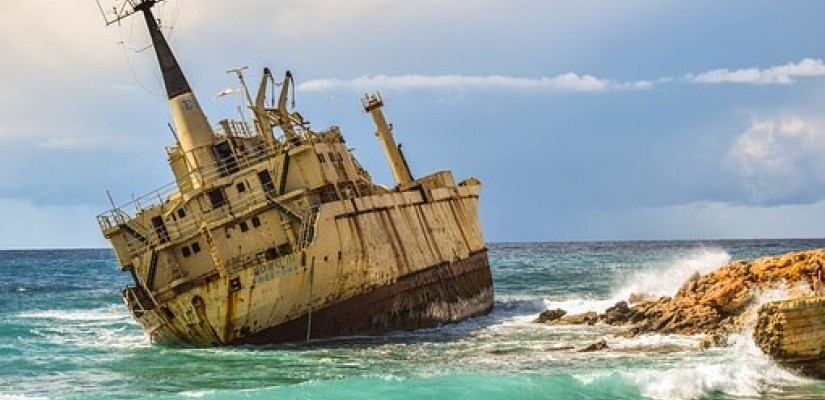Longstanding tensions in the Eastern Mediterranean have escalated to dangerous levels. Competition for subterranean energy resources, particularly natural gas, has further complicated relations between Turkey, Greece, and Cyprus. Recent wargames by the Turkish military and discoveries of massive natural gas wells have further added to existing territorial disagreements.
History of Tensions
Territorial disputes between Turkey and Greece have existed for centuries. Cyprus itself is a perfect example of how these disputes continue today. The country of Cyprus, once controlled by the Ottoman and British empires, has been divided between Turkish and Greek ownership since 1974. Following military confrontation in 1974, the island was split along ethnic lines between Greek Cypriots and Turkish Cypriots. According to the 1960 constitution, power was to be divided between Greek and Turkish Cypriots, governed by a Greek Cypriot President and a Turkish Cypriot Vice President. The Vice President would have power to veto laws, but the position has remained vacant since 1963.
The Republic of Cyprus, formally recognized by the international community and member of the European Union since 2004, is controlled by Greek Cypriots. Recognized solely by Turkey, the Turkish Republic of Northern Cyprus (TRNC) represents the Turkish Cypriot half of the island. The UN has made several attempts to negotiate for the reunification of Cyprus, yet all efforts have failed to find a solution. Overlapping claims of jurisdiction for offshore oil and gas research in the Eastern Mediterranean have created the latest evolution to this dated dispute. Simply stated, the escalation we are witnessing now is an extension of existing territorial disputes, amplified by the discovery of valuable natural resources.

Resource Competition
Hydrocarbon resources in the Eastern Mediterranean have rekindled frictions between Turkey and the Greek-Cypriot controlled Cyprus. The newly discovered Aphrodite gas field within the territorial waters of Cyprus is estimated to contain 3 to 6 trillion cubic feet of natural gas. Cyprus asserts legal rights to offshore exploration, however Turkey also lays claim to these waters by extension of the Turkish Cypriots.
According to international maritime law, the United Nations Convention on the Law of the Sea states that national territories have a continental shelf up to 200 nautical miles and islands have territorial waters that extend up to 12 nautical miles. Using this definition, the Greek Cypriot administration has created an Exclusive Economic Zone (EEZ) around Cyprus. Turkey does not recognize this EEZ however, as it does not recognize the legitimacy of Cyprus.
The activities of Turkey’s state-run petroleum and gas company, Turkish Petroleum, have been supported by the Turkish navy, which has actively enforced Turkey’s claim to the waters. In February of 2018, the Turkish navy blocked an Italian drillship from operating in the disputed waters, and in October of the same year, the Turkish navy prevented a Greek frigate from interfering with a Turkish-vessel’s seismic surveys. Greece has denied that this claim is true.
In October of 2018, Turkey’s first drillship, accompanied by Turkish naval vessels, began drilling at a well off the coast of Antalya. Then in February of 2019, Turkey launched its second drillship. Originally believed to be bound for the Black Sea, the second ship is now reportedly intended to conduct operations near Cyprus. Although drilling by Turkish vessels has commenced just last year, Turkey has been conducting seismic surveys for over eight years. According to the Turkish Energy and Natural Resources Minister, Faith Dönmez, Turkey plans to increase its drilling activities in the Mediterranean Sea.
In January of 2019, Egypt, Israel, Cyprus, Greece, Italy, Jordan, and the Palestinian Authority established the Eastern Mediterranean Gas Forum (EMGF) with the purpose of coordinating energy policies and establishing a regional gas market. Notably, Turkey was not included. The EMGF was created partially to help coordinate the endeavors of the over six international energy companies active near Cyprus. Turkey’s controversial exclusion from the EMGF can be explained by its activity in the area.
From the viewpoint of the Turkish government, Turkey has the right to exploit the resources within its territorial waters, and given that Turkey recognizes the Turkish Republic of Northern Cyprus, Turkey’s territory would include the waters around Cyprus. Additionally, exploiting natural gas wells would further Turkey’s goals of reducing its dependence on imported energy and provide for the needs of its growing population.
From the Greek and Greek Cypriot perspective however, Turkey is violating international law and using hard power in order to assert dominance in the disputed waters and transform itself into an energy power in the region.

Turkey’s Military Exercise
Demonstrating the capabilities of NATO’s second largest military, Turkey deployed frigates and destroyers to the Black, Aegean, and Mediterranean Seas as part of operation “Blue Homeland.” These exercises also included Turkish warplanes and ground units. Blue Homeland included 103 military vessels and thousands of soldiers, making it the largest naval exercise in Turkey’s history. Far more than just a drill, this exercise was undoubtedly designed to send a clear signal to its neighbors in the region. Further illustrating this point, the Turkish Foreign Minister, Mevlut Cavusoglu, stated “Let those who come to the region from far away, and their companies, see that nothing can be done in that region without us. Nothing can be done in the Mediterranean without Turkey; we will not allow it.”
Developments
Currently, tensions over drilling operations around Cyprus are far from settled. The US energy giant, ExxonMobil, has announced a new natural gas discovery off the southern coast of Cyprus and Turkey plans to deploy drilling ships to the area. The US could decide to deploy military vessels to protect its energy interests, which could create an awkward standoff between the two NATO allies. Further indicating the importance of these energy resources to Turkey, it is believed that Ankara is planning to build a naval base within the Turkish Republic of Northern Cyprus in 2019.
